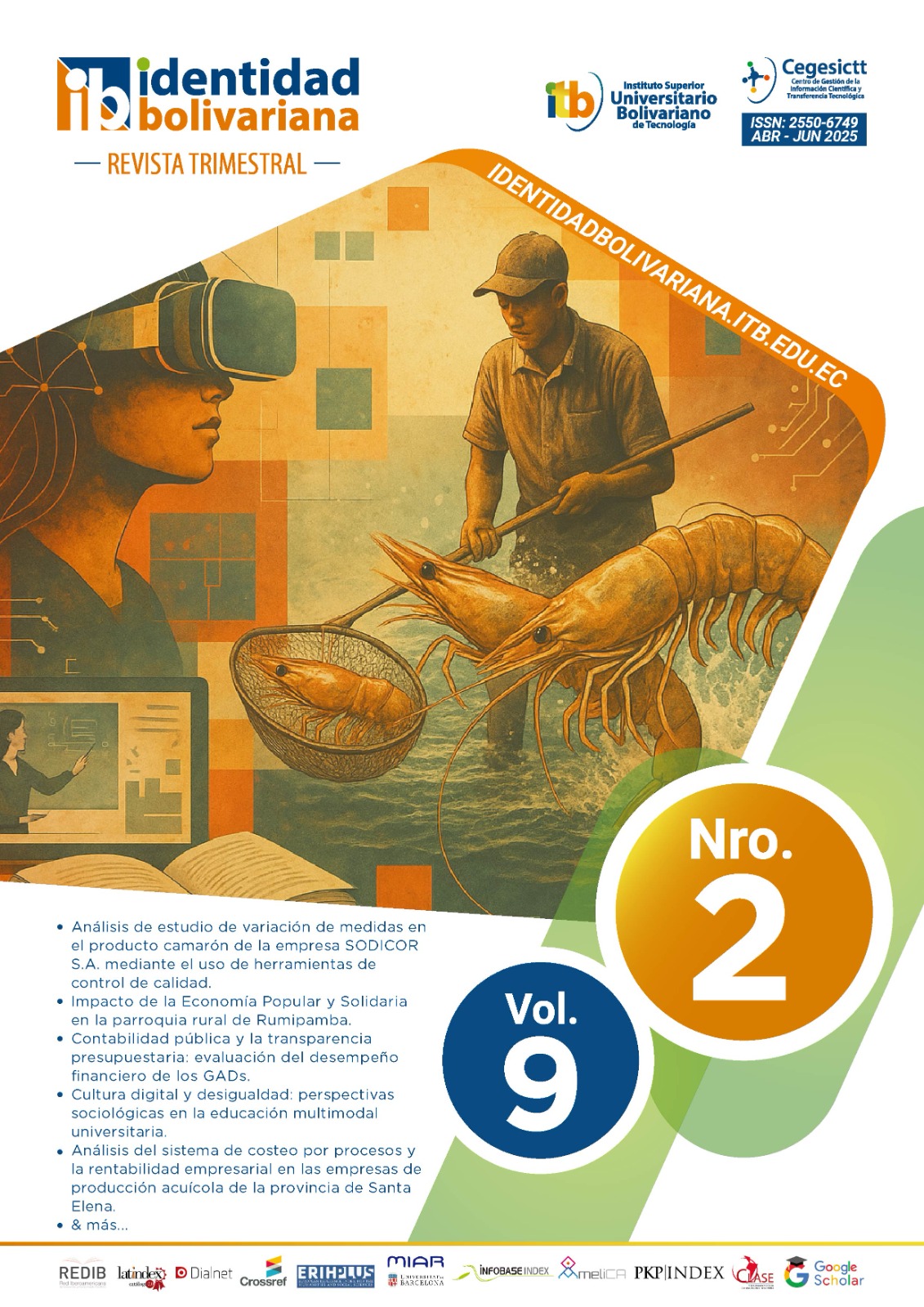Impact of the Popular and Solidarity Economy in the RuralParish of Rumipamba
Main Article Content
Abstract
Rural communities in Ecuador have historically been marginalized
and disadvantaged in terms of access to resources and economic opportunities. However, in recent years, interest and promotion of the Popular and Solidarity Economy (EPS) has increased as a way to improve living conditions and sustainable development in these commu-
nities. This article explores the impact of the EPS in the rural parish of Rumipamba - Ecuador, highlighting its role in improving quality of life, promoting community participation and strengthening social and
economic networks.
A diagnosis and data collection of the Popular and Solidarity Economy and its effect on economic development was carried out, which will be taken as a case study of the survey of the Rural Parish of Rumipamba. It will focus on descriptive statistics, building a diagnosis of the study population that is in the economic range of the effect of tourism and its impact on the economy and improvement of the
quality of life. Which there is a statistical analysis and application of policies related to the popular and solidarity economy.
Article Details
Section
How to Cite
References
Dávalos, P. (2020). Popular and solidarity economy in Ecuador: Challenges and opportunities. FLACSO.
Serrano, R., & Gómez, L. (2018). The popular and solidarity economy in Ecuador: Analysis from the experience of cooperatives. Journal of Social Economy, 12(2), 45–67.
National Institute of Popular and Solidarity Economy (IEPS). (2021). Annual management and statistics report
of the EPS in Ecuador. IEPS.
Castro, J., & Ortiz, M. (2019). The role of the popular and solidarity economy in Ecuadorian rural development. University Publishing.
Mendoza, C., & Valenzuela, F. (2021). The social and solidarity economy in Latin America: Experiences and
challenges. XXI Century Editors.
Ministry of Economic and Social Inclusion (MIES). (2020). Guide for the promotion of the Popular and Soli-
darity Economy in rural areas. MIES.
World Tourism Organization. (2023). Tourism for rural development. https://www.unwto.org/es/rural-tourism
Pascuali, M., Fortuzzi, L., & Farías, E. (2020). Evaluation of sustainability in rural tourism: A methodological
proposal for the town of Las Calles, Traslasierras, Córdoba. Agricultural Nexus, 8(2), 74–79.
Polo, A. I. P. (2010). Market orientation in the rural tourism sector: Effects on the results of business activity and the value perceived by the market [Tesis doctoral, Universidad de Granada]. Dialnet. https://dialnet.unirioja.es/servlet/tesis?codigo=63884
Sanagustín Fons, M. V., Fierro, J. A. M., & Patiño, M. G. (2011). Rural tourism: A sustainable alternative. Applied Energy, 88(2), 551–557. https://doi.org/10.1016/j.apenergy.2010.08.031
Sen, A. (2000). Development as freedom. Ecological Gazette, 55. https://www.redalyc.org/pdf/539/53905501.

